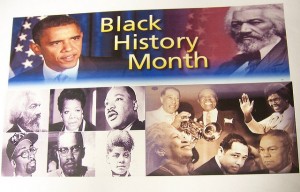Do We Still Need Black History Month? (Poll)
The debate over whether to continue Black History Month is a provocative one, and the voices calling to end it are coming from some unlikely sources. There are those who have long argued that singling out minority groups perpetuates racial animosity. Others ask “Why is there no white history month?” (A common counter argument to that is “Because every month is white history month.”). But some are raising the question because they think that having a Black History Month “lets us off the hook,” so to speak; with a month set aside to learn about black history, there’s little impetus to incorporate it into U.S. history classes.
That’s the thread chased by filmmaker Shukree Hassan Tilghman, the man behind “More Than A Month,” a documentary exploring the roots of Black History Month and the debate over whether to end it. (The film is screening in D.C. on Feb. 26).
Black History Month began in the 1920s as Negro History Week, the brainchild of D.C.’s Carter G. Woodson. The purpose: to learn about the accomplishments of black Americans and their contributions to society. Tilghman appeared on WAMU 88.5′s The Kojo Nnamdi Show earlier this month when he said that as a child, Black History Month gave him a “sense of empowerment, a sense of pride:”
That only changed as I got older. And as I became an adult, I started to see sort of the same posters that would go up on the wall. The same four, five people sort of get trotted out. I’d see, you know, in my classrooms, people’s eyes sort of glaze over when Black History Month came on, you know, these sort of things that had nothing to do with African-American history that would be programmed on television or in the community.

Tamara Evans / Flickr
But others say that there’s still a need for such platforms, including Black History Month, since society is a long way off from incorporating marginalized groups into the mainstream. As Newsweek and The Daily Beast reporter Raina Kelley writes:
Woodson’s aim was also to rebut the inaccurate and insulting stereotyping that then passed for knowledge about African-Americans—such as the canards that black people aren’t as intelligent as other races and are more prone to criminality and dancing. And sadly, nearly 100 years and a civil-rights movement later, too many people still believe that.
What do you think about the topic? Take our poll:
-
Charles in DC
-
Zpie1




